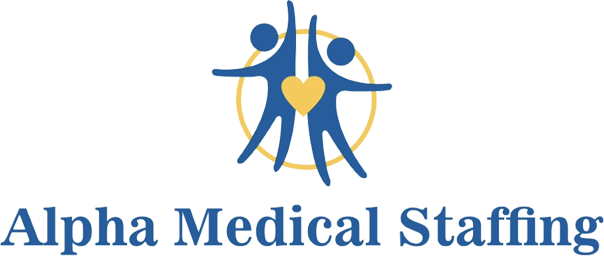Introduction
In today’s rapidly evolving healthcare landscape, efficient staffing plays a crucial role in maintaining optimal patient care. Healthcare staffing solutions have emerged as a reliable strategy to address staffing challenges and improve operational efficiency. This article explores the concept of healthcare staffing solutions, highlights their benefits, discusses the challenges faced in healthcare staffing, and provides insights into finding the right staffing agency. Moreover, it delves into the role of technology in streamlining the staffing process and sheds light on the healthcare staffing solutions available in Fairfax, VA.
Understanding Healthcare Staffing Solutions
Healthcare staffing solutions refer to the strategic process of securing temporary or permanent healthcare professionals to meet the staffing needs of healthcare organizations. These solutions involve partnering with specialized staffing agencies that possess the expertise and resources to identify and place qualified healthcare professionals in various roles.
Benefits of Healthcare Staffing Solutions
Flexibility in Staffing
One of the significant advantages of healthcare staffing solutions is the flexibility they offer. Healthcare organizations can adjust their staffing levels based on fluctuating patient volumes, seasonal demands, or unexpected staff absences. With access to a pool of pre-screened professionals, organizations can swiftly fill staffing gaps, ensuring continuous care provision.
Cost Savings
Healthcare staffing solutions can provide cost savings to organizations. By leveraging temporary staffing options, organizations can avoid the expenses associated with full-time staff benefits, such as healthcare coverage, retirement plans, and paid time off. Moreover, staffing agencies handle administrative tasks, reducing the burden on internal resources and optimizing cost-effectiveness.
Improved Patient Care
Quality healthcare staffing solutions have a direct impact on patient care. By ensuring an adequate number of competent healthcare professionals, organizations can maintain high standards of care delivery. This leads to reduced wait times, improved patient outcomes, and enhanced overall patient satisfaction.
Challenges in Healthcare Staffing
Staff Shortages
The healthcare industry often faces staff shortages, which can pose significant challenges for organizations. Factors such as an aging population, increased demand for healthcare services, and specialized skill requirements contribute to the scarcity of qualified healthcare professionals. Staffing solutions help bridge the gap by providing access to a diverse talent pool and specialized expertise.
High Turnover Rates
High turnover rates can disrupt the stability of healthcare organizations and affect patient care. Staffing solutions enable organizations to address turnover challenges by promptly filling vacant positions and maintaining continuity in care provision. This reduces the negative impact of turnover on patient outcomes and organizational performance.
Compliance and Credentialing
Healthcare staffing requires adherence to strict compliance standards and thorough credentialing processes. Staffing agencies assist organizations in ensuring that healthcare professionals possess the necessary licenses, certifications, and qualifications. This ensures regulatory compliance and mitigates risks associated with credentialing discrepancies.
Finding the Right Healthcare Staffing Agency
Assessing Agency Reputation
When selecting a healthcare staffing agency, it is essential to evaluate their reputation. Look for agencies with a proven track record, positive client reviews, and a solid industry reputation. A reputable agency demonstrates professionalism, reliability, and a commitment to delivering high-quality staffing solutions.
Evaluating Credentials and Qualifications
Verify the credentials and qualifications of the healthcare professionals provided by the staffing agency. Ensure that they possess the necessary certifications, licenses, and experience relevant to the required roles. Thoroughly reviewing candidate profiles helps ensure that the agency supplies competent professionals who meet your organization’s specific needs.
Ensuring Compliance with Regulations
Compliance with regulatory standards is crucial in healthcare staffing. Ensure that the agency follows strict compliance protocols and conducts comprehensive background checks, including verifying licenses, certifications, and professional references. This helps safeguard against potential legal and regulatory issues.
The Role of Technology in Healthcare Staffing
Applicant Tracking Systems
Technology has revolutionized healthcare staffing processes, with Applicant Tracking Systems (ATS) playing a pivotal role. ATS streamlines candidate sourcing, resume screening, and interview scheduling. By automating these tasks, ATS saves time, improves efficiency, and enables recruiters to focus on assessing candidate suitability and cultural fit.
AI-Powered Candidate Matching
Artificial Intelligence (AI) has introduced advanced candidate matching capabilities. AI-powered algorithms analyze candidate profiles, qualifications, and experience to identify the best fit for specific healthcare roles. This technology expedites the candidate selection process, enhances accuracy, and ensures the placement of highly qualified professionals.
Healthcare Staffing Solutions in Fairfax, VA
Overview of Healthcare Staffing in Fairfax, VA
Fairfax, VA, is a vibrant healthcare hub that offers diverse healthcare staffing solutions. Numerous reputable staffing agencies operate in the region, catering to the staffing needs of hospitals, clinics, long-term care facilities, and other healthcare organizations. The region benefits from proximity to prestigious educational institutions, which produce a skilled healthcare workforce.
Benefits of Choosing Healthcare Staffing Solutions in Fairfax, VA
Opting for healthcare staffing solutions in Fairfax, VA, brings several advantages. These include access to a pool of highly qualified professionals, including physicians, nurses, allied health professionals, and administrative staff. The staffing agencies in Fairfax, VA, ensure rigorous credentialing, compliance with regulations, and seamless integration of staff into healthcare organizations.
Conclusion
In conclusion, healthcare staffing solutions have become a vital resource for organizations seeking to optimize patient care, address staffing challenges, and streamline operations. The benefits of flexibility, cost savings, and improved patient care make these solutions indispensable in the healthcare industry. It is crucial to find the right staffing agency that aligns with your organization’s needs, reputation, and compliance requirements. Embracing technology, such as Applicant Tracking Systems and AI-powered candidate matching, further enhances the efficiency of healthcare staffing processes. In Fairfax, VA, healthcare staffing solutions provide access to a talented workforce and contribute to the region’s thriving healthcare ecosystem.
FAQs
- What are the advantages of healthcare staffing solutions?
Healthcare staffing solutions offer benefits such as flexible staffing, cost savings, and improved patient care. They allow organizations to adapt to changing demands, optimize expenses, and ensure high-quality care provision.
- How can technology improve the healthcare staffing process?
Technology, such as Applicant Tracking Systems and AI-powered candidate matching, streamlines candidate selection, enhances efficiency, and expedites the placement of qualified professionals.
- Why is it important to choose the right healthcare staffing agency?
Choosing the right healthcare staffing agency ensures access to qualified professionals, compliance with regulations, and seamless integration into healthcare organizations, ultimately impacting patient care and organizational performance.
- What are the key challenges in healthcare staffing?
Key challenges in healthcare staffing include staff shortages, high turnover rates, and compliance and credentialing requirements. Staffing solutions help address these challenges effectively.
- How does healthcare staffing contribute to improved patient care?
Healthcare staffing ensures an adequate number of competent professionals, reducing wait times, enhancing patient outcomes, and improving overall patient satisfaction.


